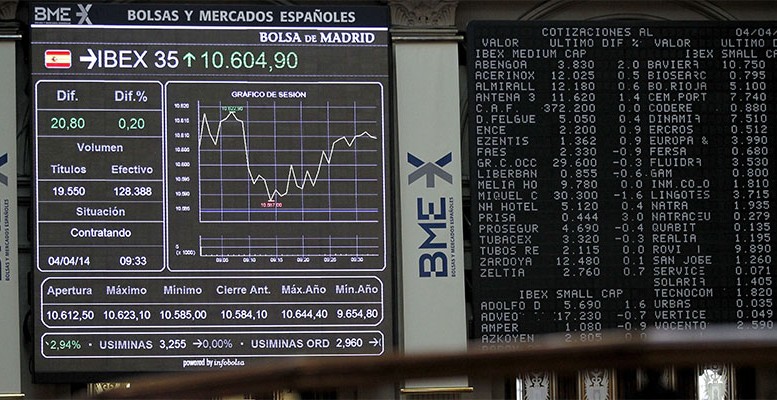F. Barciela and F.G. Ljubetic | Not everything is bad news with stocks. The current collapse of the markets has produced very clear opportunities for all those investors who give priority to dividend payments. This is particularly true of Spain’s Ibex 35, which has positioned itself as one of the best, if indeed not the best, of the big stock exchanges as far as shareholder remuneration is concerned.
While dividend yields are usually 3% or 4% in the main European and US stock markets, in Spain they are over 5 percent. And they are still growing. In 2016, the dividend yield in Spain will be 5.13%, only comparable with the 4.58% of the UK FTSE 100. The average is just 3.56% for the French CAC, 3.1% for the German DAX and 2.34% for the US S&P.
Some of the Ibex 35 companies have even exceeded these already high rates. A third of them pay over 5%. For example, Repsol with about 10%. And Telefonica with 7.34%, Endesa with 6.48% and Mapfre with 6.16% are among the best for the dividend conscious investors.
Without doubt, much of this is explained by the heavy drop in Spanish stock prices over the past months (28% since May 2015). While the price of many stocks declined, their dividend yield went up.
But this doesn’t explain everything. Another reason is that there are a good deal of companies in the Ibex 35 with a business model supported by recurring revenues; power and gas utilities, banks, highway concessions and others like Telefonica or Mapfre. As we know, in other markets where industrial and technological corporations have a bigger presence, dividend remuneration on average is not so high.
Another important factor is that many of these companies are looking to lure their shareholders with increasing remuneration in order to curb selling pressure and attract more stable investors. Gas Natural, Endesa and Red Electrica have said that they will hike their dividend payout in the next few years. In general, by an additional about 5% annually. Endesa has even said it will probably increase its payout to 100 per cent. So in 2016, Spanish listed companies will hand out around 27 billion euros in dividends.
Is this very risky in the current scenario? Probably, but the Spanish companies commited to this strategy have explained that the rise in dividend payout is justified by the improved corporate profits expected for the 2016. Low crude prices, the good euro-dollar parity and the ECB’s expansive monetary policy are also influencing factors.
But analysts are warning that investors should be cautious since some companies might not be able to meet their commitments. A case in point is Repsol, which could see its dividend yield drop to 4% or less. Although the oil group insists it will maintain its commitment, most brokerage houses are not confident. And the same could be said of the banks, which are not in very good shape.





